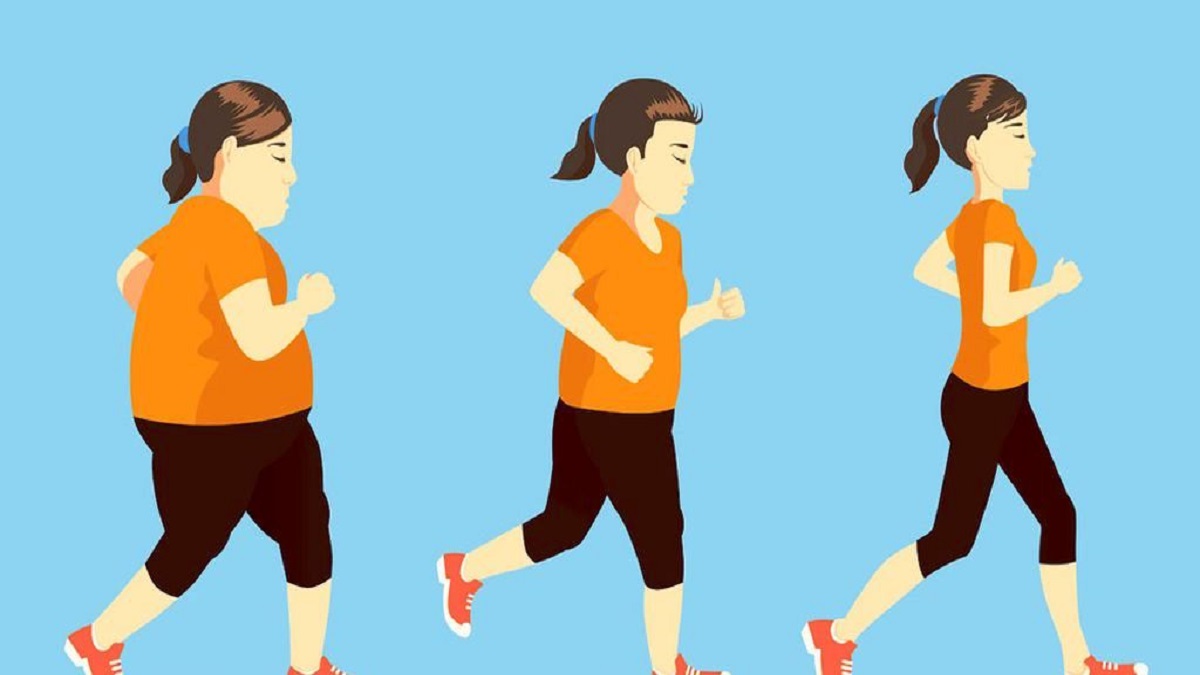Losing weight is not an overnight process, it can take you months or even years to reach your desired weight. It is very much possible for an individual to lose weight quiet early through fad diets and extremely low caloric intake but the probability of gaining it back is pretty much high. This process of losing weight and gaining it back is termed as yo-yo dieting. Following a certain diet for a period of time is a temporary solution to lose weight. Once a person gets back to his normal eating habits the weight bounces back quickly and the struggle to lose weight starts again this cycle of losing and gaining weight can be extremely harmful for your health. Here are the details about yo-yo dieting or weight cycling.
What is yo-yo dieting?
Yo-Yo dieting or clinically termed as “weight cycling” is a repeated process of gaining weight and dieting in response. Then losing weight as a result of dieting and ultimately gaining the lost weight back followed by a new journey of weight loss and the cycle goes on. Following highly restrictive diets, such as ketogenic diet, atkins diet, protein diet, water diet and many more such fancy diets, help a person lose weight within days.
The science behind these diets itself explains that these diets are not sustainable and come with a number of adverse effects that can cause irreparable damage to your body. Since these diets are based on a specific food group and cut down or limit the intake of other major food groups so when a person quits these diets and starts eating from all food groups he eventually end up gaining more weight than he has lost.
Read More: Is It Bad To Lose Weight Too Early? – About Pakistan
Mechanism of yo-yo diet
When a person attempts to lose weight by severely reducing the amount of food body responds in different ways. Sometimes when you limit your diet to an extreme level the body senses the scarcity of food and shifts to starvation mode. When the body is fed following a period of starvation or less food intake the body starts storing the food in the form of fats for the future utility and thus a person starts gaining weight drastically. At this point your body stops burning fat as the amount of leptin, hormones that promote the leakage of fats from fats reserve thus conserving the fats.
Following these changes, thyroid function slows down and metabolism become sluggish. Brain also sends signals to the brain to limit the body movement, making a person lazy and frustrated. This increases a person’s urge to consume more food and increased craving for food. The perception of depriving yourself can lead you to binge eating and you can become am emotional eater. Thus food becomes a source of satisfaction for many people who follow severe diets. Considering all these factors, you end up becoming heavier than before you started weight loss.
How does yo-yo diet effect your body
Researches have been conducted to prove that weight cycling or yo-yo dieting can exert some seriously negative effects on your body. Due to repeated weight loss and weight gain, body has to suffer through challenging conditions which effect the overall functioning of hormones. Moreover, one of the most obvious and visible effect of yo-yo cycle is that there is an increased body fat percentage and decreased muscle mass.
When body loses weight it loses fat as well as muscle mass and during the weight gain phase fat is regained more easily than muscle gain. This results in an increased body fat percentage. As a consequence of increased fat percentage risk of fatty liver increases. Since obesity is the risk factor for fatty liver. This can effect how body metabolises fats and sugars resulting in an elevated risk of type II diabetes. It can occasionally lead to chronic liver failure or cirrhosis.
Furthermore, a person having excessive weight is more prone to get cardiac diseases such as coronary artery disease- a condition in which the blood vessels supplying the muscles of heart become narrow and can increase the chances of myocardial infarction. Not just physical health, but weight cycling can effect a person’s mental health too. It can cause frustration, anxiety and depression among people being a subject of weight cycling. The science behind the frustration is not clearly understood, but studies suggest that due increased levels of cortisol a person might become anxious. It is very obvious that when a person loses weight after staying hungry for days and still gains it back it effects his motivation and will power. It causes a person to give up leaving him in depression.
Read More: When You Lose Weight, Where Does It Go? – About Pakistan
How to avoid yo-yo effect
Yo-yo effect can cause hindrance in keeping the extra weight off and a person can end up losing motivation for further weight loss. Yo-yo effect can be avoided by following a few tips.
- Reduce body fat and maintain muscle mass. This is only possible when you follow a healthy and sustainable diet or making lifestyle modifications. In order to maintain muscle mass, exercising regularly is compulsory. Muscle mass is increased through resistance training or weight lifting. When muscle replaces the fat mass it gives a strength to body and weight doesn’t bounce back until a person stops working out and starts over eating.
- Skipping meal should be strictly avoided. Not eating for longer periods activates the starvation mode of the body which causes a person to binge eat when the eats food. It puts the body’s metabolism to rest and food that is eaten isn’t metabolised which causes gastric issues. This can causes yo-yo effect as a person gains weight due to sluggish metabolism.
- Eat more low-calorie food, but incorporate all the food groups in your diet. When body is used to variety of foods it doesn’t store food rather consumes it in the form of energy keeping a person more active and metabolism is fast which aids the process of weight loss and keeps a person on track.
- Exercise regularly to speed up the metabolism and fat burning process. When a person exercises body uses fat reserves to provide energy to active muscles this regulates the fat metabolism and reduces body fat percentage. When a person stops exercising weight bounces back as the body’s energy requirement is less than the available reserves and surplus food is stored in the form of fats.
Conclusion
Every person desires to lose weight without getting it back. But it sometimes remains a wish that is never fulfilled. Since weight loss and keeping a balance between diet and exercise are interdependent thus if a person follows a diet that is too restrictive to be followed in a long run he actually paves his path to weight gain. There is no short cut to weight loss only thing that seems practical and sustainable is healthy eating and staying physically active.
Expensive diets these days have become a business for many dietitians and a new craze for people looking for sudden weight loss, but they are not aware of the fact that weight that bounces back as a result of fad diets is more stubborn and it becomes harder for a person to lose weight over and over again. It is recommended to go for healthier options to maintain a good health and gradually losing weight that stays off for good.
Read More: Yoga vs Pilates: how to know which one is right for you? – About Pakistan


















